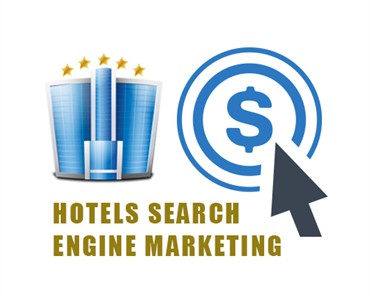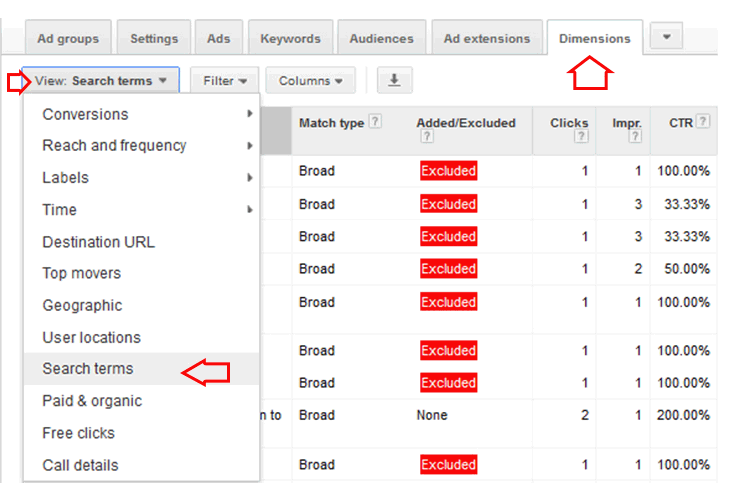Top Practices for Hotel Search Engine Marketing
Search engine marketing is now one of the most effective practices for hotel marketers. However, starting a Pay Per Click (PPC) campaign for your hotel without specific objectives may produce ineffective results.
So what’s the best PPC strategy for your hotel? We will try to answer that question in this blog post. In my previous blog, Search Engine Marketing Benefits for Hotels, I provided information on the best practices for managing PPC campaigns. In this blog, I will provide further insights about search engine marketing for hoteliers.

The Landing Page is Your First Impression
The landing page is the destination for those clicking through the ad. It is important to optimize the landing page to get and keep the attention of the visitor. How do you do that? Well, your landing page should include the following elements:
- Booking: The main goal for the campaign is to convert visitors into buyers. Therefore, you need to include a booking engine on your landing page. If you are targeting different countries with your campaign, it is important to localize the booking engine. For more information, check out our previous blog: Translation of Hotel Booking Engines and Tourism in the Middle East.
- Call to action: It’s important to optimize your landing page with a powerful and visible call-to-action like a “Download” button or “Virtual Tour” link. If your hotel’s website doesn’t have a built-in booking engine, you should highly consider booking buttons which could be associated with third-party booking engines. Make sure your contact information is prominent so the visitor knows who to contact or where to go to get the information they need to make the booking decision.
- Full information: The landing page should round out your ad. Usually the ad contains brief information (due to character limitations) that sparks interest and leads visitors to your website. When they reach the landing page, they should be able to find more information like your service offering, location, facilities, images and videos.
- Search engine optimization: Optimizing your landing page for search engines is also required in order to obtain good results. Make sure you include the most important keywords in your meta tags and content to rank higher in searches.
Target the Right Audience
These days, most hotels have an online presence. It seems even smaller hotels and hostels have localized websites in two or three languages. Website translation is a great way to expand into new markets in order to increase revenue; ads and keywords localization is one of the most effective ways to deliver your message to the right online traveler. For more information on running an international PPC campaign, please see our blog at: Best Practices for International PPC Campaigns.
Budget Optimization
It’s not a best practice to divide your budget across all over your hotel PPC campaigns. You need to continually monitor the performance of the keywords and adjust the bidding according to the conversion. Conversions are the top indicator for keywords, not the number of clicks and cost per click (CPC). You should also avoid using the same budget year round; consider increasing the bidding for the different seasons and holidays. By establishing an effective bidding strategy, you can save money and increase your ROI.
Google Ad Extensions
You can now offer your potential online travelers more ways to click through to your site. Ad Extensions is a feature offered by Google AdWords that lets you give your potential guests more links to the displayed ad. This feature helps you to provide more useful links about your hotel, such as phone numbers, special offers and other locations. Ad Extensions is now a best practice for PPC campaigns.
Seasonality
Holiday and peak travel seasons should also be taken into consideration when planning a PPC campaign. Adjust your budget and bidding according to the months with high and low demand. During the off-peak season, create special offers that can be promoted through your ads to generate new business.
Negative Keywords
Negative keywords can cost you a lot of money through unneeded clicks and they can lower your cost per click (CPC) as well. Continually monitor newly added negative keywords and exclude them. For example, if your hotel is targeting a more sophisticated clientele, including the keyword “cheap” would be a negative keyword for your hotel campaign.

Device Targeting
In July 2013, Google AdWords launched an update which enables hotel marketers to target guests based on the device they are using (mobile phones, tablets or even desktop systems). You can adjust your budgets based on the device you wish to target.
Tracking and Monitoring
Just like other marketing initiatives, your hotel PPC campaign needs your full attention as it’s an ongoing effort to monitor your hotel PPC strategy. Keywords should be modified according to results from Google’s tools, like Google Analytics, AdWords Conversion Tracking and Google Keyword Planner. Understanding your potential guests’ behavior will help you to make the right decisions regarding your campaign and its desired performance.
Following these best practices will help you to achieve the best results from your hotel PPC campaign and increase your ROI.
